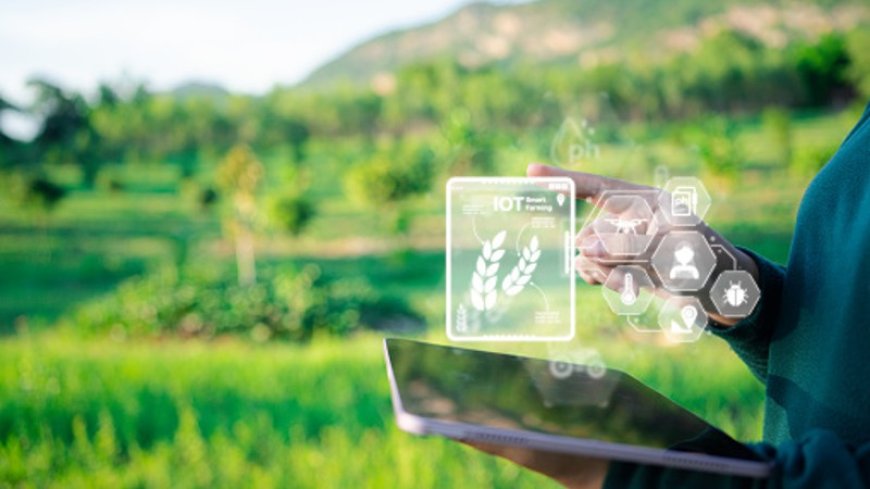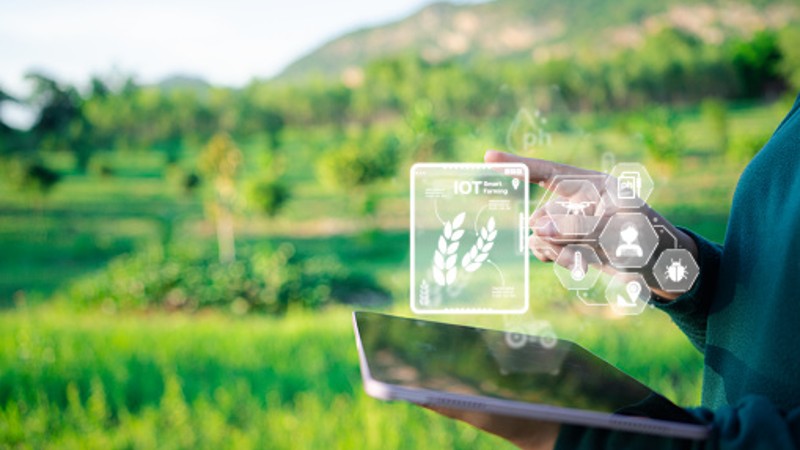Digital development: Food brands play ‘critical role’ in shifting agrifood system towards modernisation and sustainability
Food brands play 'critical role' in shifting agrifood system towards modernisation and sustainability FoodNavigator-Asia.com

Sustainable Development Goals and the Agrifood Sector

Introduction
Over the past decade, there have been numerous discussions on digitalizing the agrifood sector and implementing agtech innovations. However, the implementation of these innovations has proven to be challenging, especially when involving smallholders. In order to address this challenge, venture capital consultancy ID Capital emphasizes the need for organization and defragmentation in the digital agritechnology space.
Organizing Disorganized and Fragmented Systems
According to ID Capital Founder Isabelle Decitre, the most efficient agritech innovations for smallholder farmers in Asia are those that help organize disorganized and fragmented systems. Digital marketplaces, such as India-based Aquaconnect, exemplify this by bringing transparency and efficiency to the seafood value chain. These platforms enable direct post-harvest linkages between farmers and seafood buyers, optimizing profit and loss for both stakeholders.
However, in agriculture, minimizing fixed costs and reducing variable costs of acquiring clients does not consistently apply. This poses a challenge for Software as a Service (SaaS) models to succeed. The discrepancy in outcomes is not due to malfunctioning digital tools, but rather the difficulty of translating an abundance of data into actionable insights.
Financing and Funding Challenges
Financing and funding are key challenges in the agrifood sector. The imbalance of venture capital funding in the past decade has overlooked this issue. The current “winter of VC funding” has shed light on the misalignment between venture capital investor expectations and startup trajectories. Startups in the agrifood sector require longer timeframes for growth and returns, which do not consistently align with the expectations of rapid and exceptional growth set by venture capital investors.
The Role of Food Brands in Driving Change
The International Finance Corporation (IFC) highlights the unique challenge of agriculture being slow to change while playing a crucial role in ensuring a sustainable food supply. To address this challenge, food brands that have stronger influence within the supply chain can support the use of digital tools among small farmers. These brands can introduce improved farming practices and digital technology to gather data on the climate impact of farming within their supply chains. Consumer-facing food brands play a critical role in driving change and setting new expectations throughout the entire supply chain.
Make the Risk Make Sense
When asking farmers to adopt new technology, it is important to make the risk make sense for them. The most advanced technology may not always be the most attractive driver for farmers. Incremental improvements are needed, but farmers need to see the expected outcomes and associated risks that make sense for their businesses. Agricultural fintech plays a crucial role in assisting farmers in financing their businesses and eliminating barriers to accessing credit and other financial solutions.
Collaborative Approaches and Spreading New Farming Approaches
IFC runs initiatives, such as the Ag Tech Viet Nam project, where it develops digital tools for farmers of rice, coffee, and pepper. These initiatives aim to reward farmers and suppliers with sustainability-linked premiums and trade financing. The cost of digital solutions and ensuring their reach to a wider community of farmers remain topics of debate. Collaborative approaches, including partnerships with public funds and the donor community, are crucial in spreading new farming approaches to large groups of farmers and ensuring food security.
Conclusion
The digital transformation of agriculture is a major topic of discussion in the upcoming Future Food Asia 2024 event. It is clear that sustainable development goals, such as organizing fragmented systems, addressing financing challenges, and driving change through food brands, are crucial in shifting the agrifood sector towards modernization and sustainability.
SDGs, Targets, and Indicators
| SDGs | Targets | Indicators |
|---|---|---|
| SDG 2: Zero Hunger | 2.3: By 2030, double the agricultural productivity and incomes of small-scale food producers, in particular women, indigenous peoples, family farmers, pastoralists, and fishers, including through secure and equal access to land, other productive resources and inputs, knowledge, financial services, markets, and opportunities for value addition and non-farm employment. | The article mentions Aquaconnect, an India-based aquaculture technology platform that brings transparency and efficiency to the seafood value chain. It enables direct post-harvest linkages between farmers and seafood buyers, optimizing profit and loss for both stakeholders. |
| SDG 9: Industry, Innovation, and Infrastructure | 9.1: Develop quality, reliable, sustainable, and resilient infrastructure, including regional and transborder infrastructure, to support economic development and human well-being, with a focus on affordable and equitable access for all. | The article emphasizes the need for organization and defragmentation in the digital agritechnology sector to achieve efficiency and effectiveness. This requires the development of reliable and sustainable infrastructure. |
| SDG 12: Responsible Consumption and Production | 12.6: Encourage companies, especially large and transnational companies, to adopt sustainable practices and to integrate sustainability information into their reporting cycle. | The article highlights the role of consumer-facing food brands in driving change and setting new expectations throughout the entire supply chain. These brands possess the scale and incentive to catalyze rapid transformations and introduce new industry norms, including sustainability practices. |
| SDG 17: Partnerships for the Goals | 17.6: Enhance North-South, South-South, and triangular regional and international cooperation on and access to science, technology, and innovation and enhance knowledge sharing on mutually agreed terms, including through improved coordination among existing mechanisms, particularly at the United Nations level, and through a global technology facilitation mechanism. | The article mentions the need for collaborative approaches beyond digital tools and innovative partnerships with public funds and the donor community to ensure the spread of new farming approaches to large groups of farmers and provide necessary support for food security. |
Behold! This splendid article springs forth from the wellspring of knowledge, shaped by a wondrous proprietary AI technology that delved into a vast ocean of data, illuminating the path towards the Sustainable Development Goals. Remember that all rights are reserved by SDG Investors LLC, empowering us to champion progress together.
Source: foodnavigator-asia.com

Join us, as fellow seekers of change, on a transformative journey at https://sdgtalks.ai/welcome, where you can become a member and actively contribute to shaping a brighter future.







